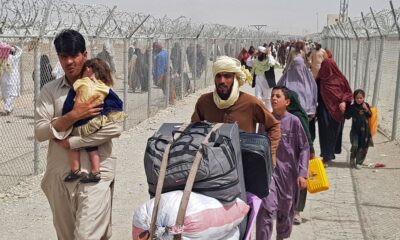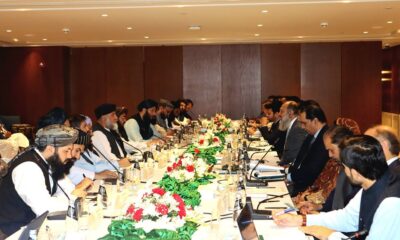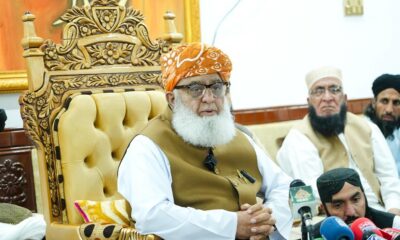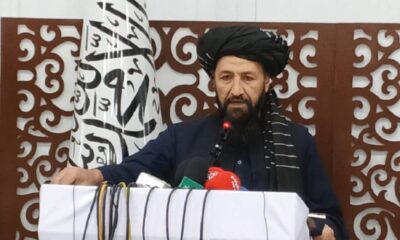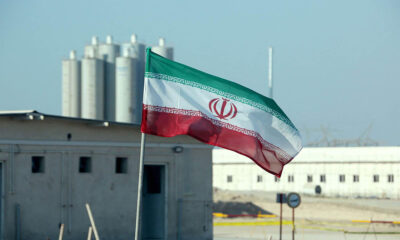Regional
Pakistan court sentences ex-PM Imran Khan to 14 years in land graft case

A Pakistani court sentenced former Prime Minister Imran Khan to 14 years imprisonment on Friday in a land corruption case, local broadcaster ARY News reported.
The verdict in the case, the largest in terms of financial wrongdoing faced by Khan, was delivered by an anti-graft court in a prison in the garrison city of Rawalpindi, where Khan has been jailed since August 2023, Reuters reported.
The former cricket star, 72, had been indicted on charges that he and his wife were gifted land by a real estate developer during his premiership from 2018 to 2022 in exchange for illegal favours.
Khan and his wife, Bushra Bibi, had pleaded not guilty. The announcement of the verdict was delayed three times, most recently on Monday, amid talks between the government and Khan’s party.
Bushra Bibi, who is in her late 40s and was out on bail, was taken into custody after she was also convicted in the case, Geo News reported.
“Whilst we wait for detailed decision, it’s important to note that, the Al Qadir Trust case against Imran Khan and Bushra Bibi lacks any solid foundation and is bound to collapse,” Khan’s Pakistan Tehreek-e-Insaf party’s foreign media wing said in a statement.
The verdict is the biggest setback for Khan and his party since a surprisingly good showing in the 2024 general election when its candidates – who were forced to contest as independents – won the most seats, but fell short of the majority needed to form a government.
Jailed since August 2023, Khan has been facing dozens of cases ranging from charges of graft and misuse of power, to inciting violence against the state after being removed from office in a parliamentary vote of confidence in April 2022.
He has either been acquitted or his sentences suspended in most cases, except for one on charges of inciting supporters to rampage through military facilities to protest against his arrest on May 9, 2023.
His supporters have led several violent protest rallies since the May 9 incidents.
He has been tried inside a jail on security grounds.
Regional
Iran says its right to uranium enrichment is non-negotiable
Last weekend’s U.S.-Iran talks in Oman were described by both sides as positive and constructive.
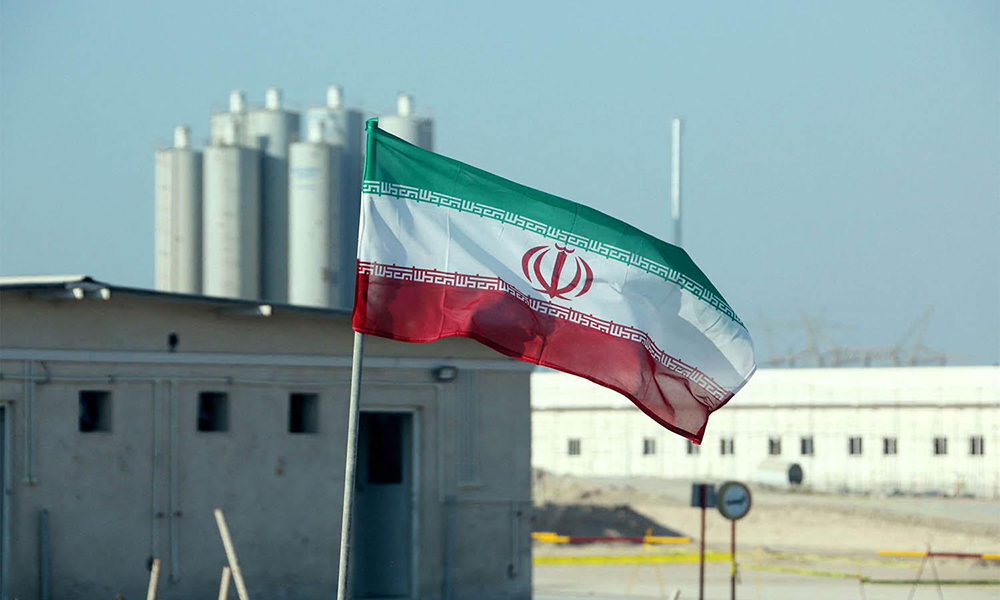
Iran’s right to enrich uranium is not negotiable, Foreign Minister Abbas Araqchi said on Wednesday ahead of a second round of talks set to take place in Rome this weekend with the United States about Tehran’s disputed nuclear programme.
The talks, which began in Oman on Saturday with the Gulf state acting as mediator, are the first between the two adversaries under U.S. President Donald Trump, who has threatened military action if there is no deal.
Araqchi was responding to a comment made on Tuesday by top U.S. negotiator Steve Witkoff, who said the Islamic Republic must “stop and eliminate its nuclear enrichment” to reach a deal with Washington.
“We have heard contradictory statements from Witkoff, but real positions will be made clear at the negotiating table,” Araqchi was quoted by Iranian state media as saying in Tehran.
“We are ready to build trust regarding possible concerns over Iran’s enrichment, but the principle of enrichment is not negotiable.”
Last weekend’s U.S.-Iran talks in Oman were described by both sides as positive and constructive.
Western powers say Iran is refining uranium to a high degree of fissile purity beyond what is justifiable for a civilian energy programme and close to the level suitable for atomic bomb fuel. Iran has long denied seeking nuclear weapons.
Iranian media said on Wednesday, without citing sources, that the second round of talks would be held in the Italian capital Rome on Saturday. It was earlier announced that the talks would resume in Oman.
Sources briefed on the matter confirmed the change of venue to Reuters.
Iran’s foreign ministry spokesperson Esmaeil Baghaei compared the venue of the Iran-US nuclear talks to a goalpost in a post on X on Wednesday, saying moving it might “jeopardize any beginning” and that changing it was a “professional error”.
A diplomatic source said Rafael Grossi, director general of the International Atomic Energy Agency, the U.N. nuclear watchdog whose inspectors monitor Iranian nuclear sites, had also been invited to Rome for the occasion of the talks.
Italian Foreign Minister Antonio Tajani confirmed the talks would be in held in Rome but said Italy would not be involved.
“Italy simply wants to be a bridge for peace; we have no ambitions of any kind. Such a delicate negotiation is up to the parties involved and their willingness to achieve a concrete result,” Tajani said in a statement.
On Thursday Araqchi will deliver a message from Iranian Supreme Leader Ali Khamenei to Russian President Vladimir Putin during a trip to Russia, state media reported.
“Amidst important global developments, close, continuous and trusting communication between Iranian and Russian authorities will serve regional as well as international peace and stability,” Iranian Ambassador Kazem Jalali wrote on X.
The Kremlin on Tuesday declined to comment when asked if Russia was ready to take control of Iran’s stocks of enriched uranium as part of a possible future nuclear deal between Iran and the United States.
Britain’s Guardian newspaper reported that Tehran was expected to reject a U.S. proposal to transfer its stockpile of enriched uranium to a third country such as Russia as part of an deal Washington is seeking to curb Iran’s nuclear activity.
Regional
Trump opposed a planned Israeli strike on Iranian nuclear sites, NYT reports
The New York Times said U.S. assistance was required not just to defend Israel from Iranian retaliation but also ensure the attack was successful.
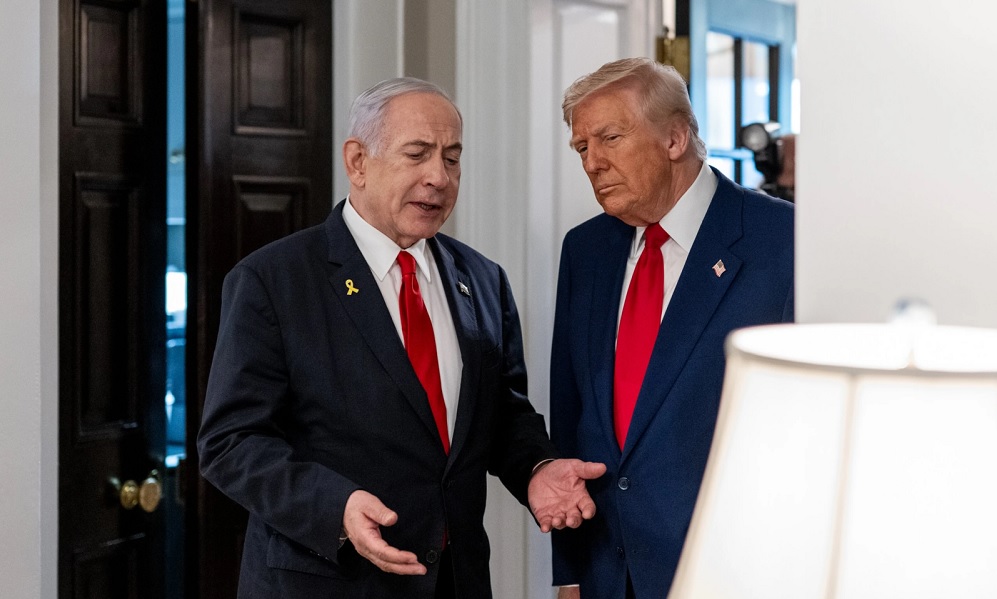
U.S. President Donald Trump blocked a planned Israeli strike on Iranian nuclear sites in favor of negotiating a deal with Iran to limit its nuclear program, the New York Times reported on Wednesday, citing administration officials and others.
Israel had developed plans to attack the sites in May, according to the newspaper, which added that the goal was to set back Iran’s ability to develop a nuclear weapon by a year or more, according to Reuters.
The New York Times said U.S. assistance was required not just to defend Israel from Iranian retaliation but also ensure the attack was successful.
After months of internal debate, Trump made the decision to seek negotiations with Iran rather than support military action.
The U.S. and Iran held talks in Oman last Saturday – the first time during a Trump administration, including his 2017-2021 first term. Both countries described the talks as “positive” and “constructive”.
A second round is scheduled for Saturday, and a source briefed on the planning said the meeting was likely to be held in Rome.
Regional
Khamenei downplays US talks prospects as some Iranians’ hopes stir, currency gains
Iran’s clerical rulers have publicly said that demands such as dismantling the country’s peaceful nuclear programme or its conventional missile capabilities were off the table.
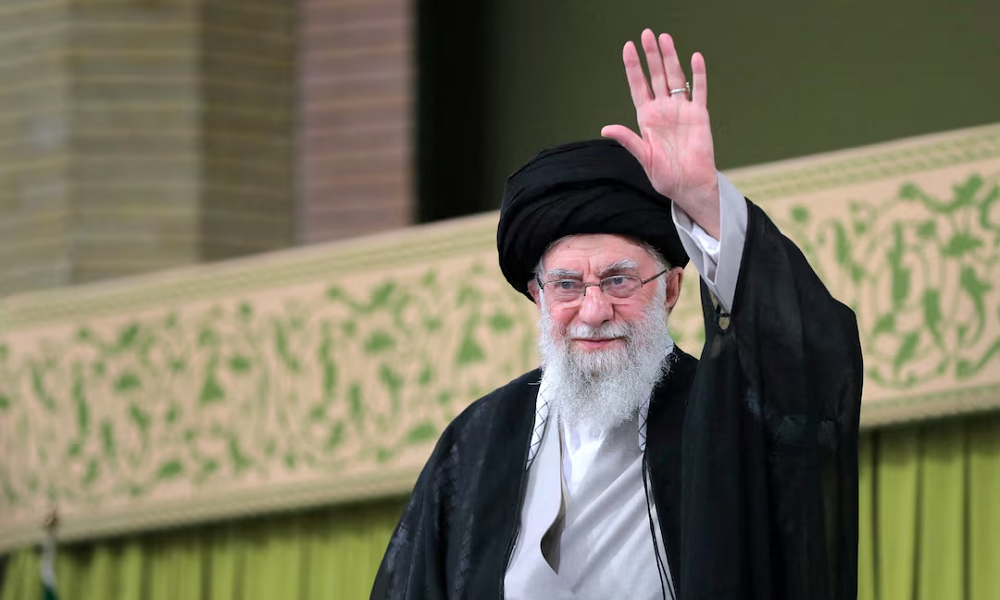
Iran’s Supreme Leader Ayatollah Ali Khamenei sought on Tuesday to play down expectations of a breakthrough in nuclear talks with the U.S., following stirrings of hope among some Iranians weary of economic hardships that have at times sparked public unrest.
Failure to reach a deal with President Donald Trump to end Iran’s decades-long dispute with the West could profoundly hurt the Islamic Republic, Iranian politicians and insiders have said, even if Washington is subsequently portrayed by Tehran as the guilty party.
A second round of nuclear talks will be held in Muscat on April 19.
Iran’s battered rial currency has gained some 20% against the dollar in the past few days, with many Iranians hoping an deal to end Iran’s economic isolation may be within reach.
“We are neither overly optimistic nor pessimistic regarding them. After all, it is a process which was decided and its first steps have been well implemented,” Khamenei said in a meeting with officials, according to state media.
White House special envoy Steve Witkoff, who leads the talks with Iran, said that Trump has asked him to “create a tough, fair deal that will endure.”
“Any final arrangement must set a framework for peace, stability, and prosperity in the Middle East – meaning that Iran must stop and eliminate its nuclear enrichment and weaponization program,” Witkoff posted on X on Tuesday.
Iran’s clerical rulers have publicly said that demands such as dismantling the country’s peaceful nuclear programme or its conventional missile capabilities were off the table.
Tehran has approached the talks warily, doubting the likelihood of an agreement and suspicious of Trump, who abandoned Tehran’s 2015 nuclear pact with six world powers during his first term in 2018. He has repeatedly threatened to use military force if there is no deal.
“From here on, it (the talks) must be followed through carefully, with red lines clearly defined for both the other side and for us. The negotiations may lead to results, or they may not,” said Khamenei.
“Avoid linking the country’s fate to these talks.”
Some Iranian officials have suggested that Trump’s business background could make him more receptive to a deal if it includes economic incentives, such as a potential purchase of U.S.-made planes or unlocking of Iran’s economy for U.S. investors.
But a number of Iranian newspapers have warned about inflating public expectations with “baseless hype”.
“Why do you make promises about the talks that cannot be fulfilled? … Don’t undermine public trust with promises made only for fleeting media attention,” wrote the Khorasan newspaper on Monday, in response to comments by an official that raised hopes of economic breakthroughs from the talks.
Since relations with Washington collapsed after Iran’s 1979 Islamic revolution that ousted the U.S.-backed Shah, enmity toward the U.S. has been a rallying point for Iran’s rulers.
But inflation, unemployment and lack of investment as a result of crippling sanctions, reimposed after Trump ditched the 2015 nuclear pact, persuaded Khamenei to support talks with the Trump administration.
Tehran’s concerns were exacerbated by Trump’s speedy revival of his first term’s “maximum pressure” campaign aimed at driving Iran’s oil exports towards zero with more sanctions.
Since 2019, Iran has far surpassed its uranium enrichment limits, according to the International Atomic Energy Agency (IAEA). Tehran is producing stocks of fissile purity well above what Western powers say is justifiable for a civilian energy programme and close to weapons grade.
Tehran has long denied seeking nuclear weapons.
“What Tehran wants in return (from the U.S.) is for sanctions to be removed on several sectors. Once those sanctions are removed, the U.S. cannot bring them back under other pretexts.” the state-run Tehran Times newspaper reported on Monday.
-
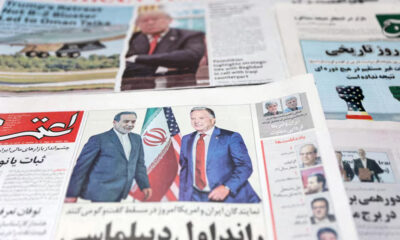
 Regional4 days ago
Regional4 days agoIran, US hold ‘positive’ talks in Oman, agree to resume next week
-
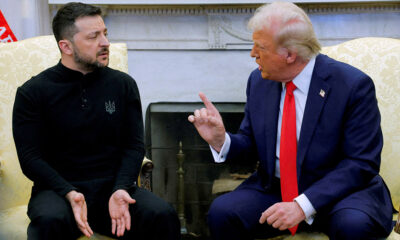
 World4 days ago
World4 days agoTrump says Ukraine talks may be going OK, but there is a time ‘to put up or shut up’
-
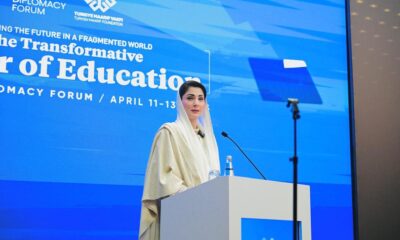
 Latest News4 days ago
Latest News4 days agoPakistan’s Punjab CM calls for ‘human response’ to Afghan girls’ education ban
-
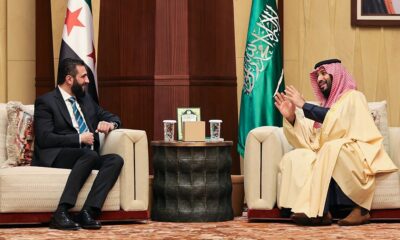
 Regional3 days ago
Regional3 days agoSaudi Arabia plans to pay off Syria’s World Bank debts – Reuters
-

 Latest News4 days ago
Latest News4 days ago6.1-magnitude earthquake shakes northern Afghanistan
-
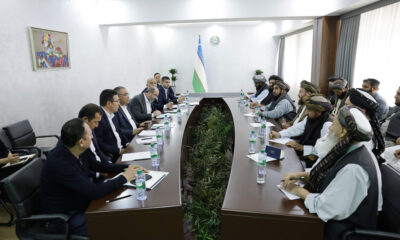
 Latest News3 days ago
Latest News3 days agoAfghanistan and Uzbekistan to expand cooperation in agriculture sector
-
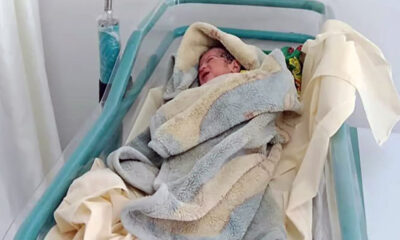
 Latest News2 days ago
Latest News2 days ago17 babies born at Torkham refugee centers in past two weeks
-

 World2 days ago
World2 days agoTrump says Iran must give up dream of nuclear weapon or face harsh response


